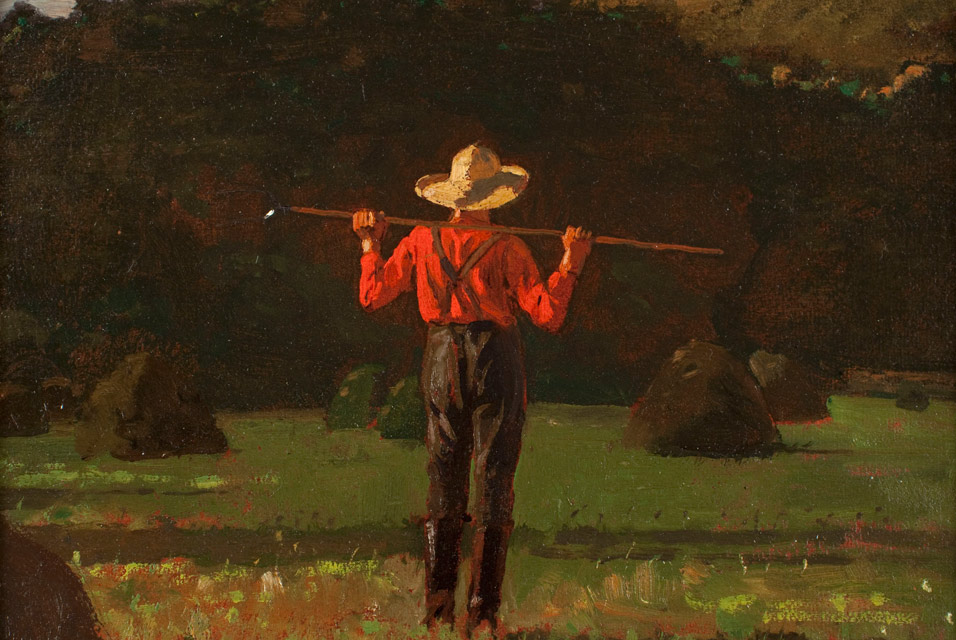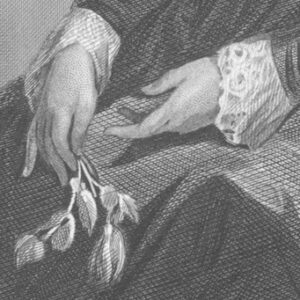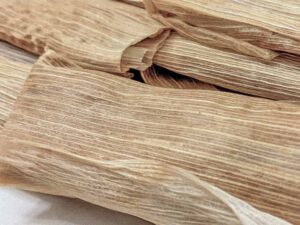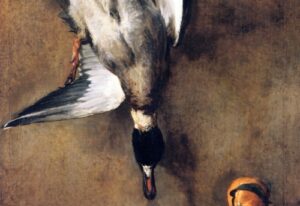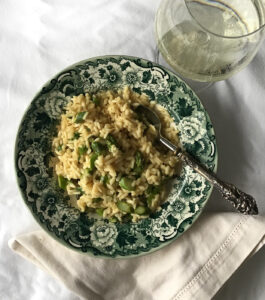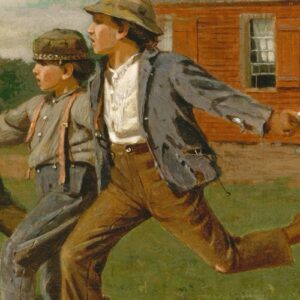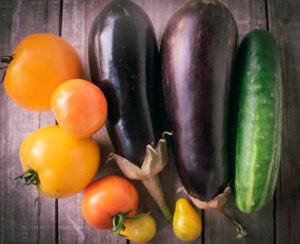Wendell Berry Farming Program

An Education in Looking and Seeing
As university programs prepared to begin their fall semester, the usual questions of degree choice and the value of higher education echoed throughout the conversations between editors and authors, and in the homes of the broader Hearth & Field community. Along with the practical questions of course curricula, book selection, and which schools are worth their salt, deeper questions linger. What is the purpose of higher education? What does a student actually gain from going to college in the first place? Is there another way of doing college that marries the practical with the poetic, the tactical with the transcendent? And yes, for that matter, which colleges are worth their salt? With these questions in mind, Hearth & Field staff caught up with Dr. Leah Bayens, the Dean of the Wendell Berry Farming Program, which offers perhaps the only college program with courses titled “Draft Animal Power Systems” and “Literature of the Rural Experience.”
To understand the Wendell Berry Farming Program, you must first understand the work and trajectory of the Berry Family, their long-standing commitment to local culture and to the continuation of sustainable agrarian practices. Wendell Berry, best known for his prolific authorship of poignant essays, beautiful poetry, and semi-biographical rural fiction, hails from a long line of thoughtful and contrarian farmers. Wendell and his daughter Mary continue the family’s work of building local culture through The Berry Center. The Farming Program is part of Wendell’s, his father John’s, and his brother John Jr.’s, vision of “a state and a nation of prosperous well-tended farms serving and supporting healthy local communities”. If we want prosperous well-tended farms that are in relationship with their land and community, we need well-formed and competent farmers. Ones whose vision of the land is consummate with their ability to work it. Mary Berry, who runs The Berry center, with its archive, agrarian cultural center, and a beef program—patterned on the tobacco cooperatives that her grandfather and father helped organize to ensure farmers made healthy profits and kept money in local economies—also initiated the idea of the school which began in 2012 at St. Catharine College, run by the Dominican Sisters of Peace.
Enter Dr. Leah Bayens, the English major whose interest in the ethos of rural culture and responsible ecology led her to study muck manuals and the long conversation around land use and how it shapes rural identity. She was tasked with leading the program and combining the liberal arts with an agricultural education that moves from the page to the field while keeping both in attentive conversation. Coursework on rural literature, as well as using draft animals, pasture management, soil microbiology, and the craft of felling trees, is combined with farm planning, management, and marketing.
Dr. Bayens emphasizes the students’ unique exposure and integration of the insights of the program’s namesake with sustainable farming practices. “Wendell’s thoughts from the ‘Unsettling of America’ to the ‘re-settling of America’, and now we are here in 2020, and the focus is on grappling with the truth that it has never been settled, not in a sustainable, real way. The desire for a sense of place, people and commitment is palpable.” Literature, local history, practical knowledge and a deep sense of membership all converge into a farming program that feels as if it is fashioning men and women who are not only fit for the land, but capable of building a culture that is more humane, just and kind.
Students read Virgil, Aldo Leopold, Chaucer, and contemporary pieces by Crystal Wilkinson, and then put on their muck boots and take the reins of a draft horse to cut a row in a field. They learn forestry from experts who share an appreciation for their craft and love for their place. They participate in the beef cooperative, “Our Home Place Meat”, and learn first-hand the challenges of raising, producing, marketing, and selling meat. They meet the kin of black tenet farmers who helped build Henry County and hear the tales, both good and bad, that have formed the ethos of the land and community. They walk the hollers and read stories in the very places they were written. They are taught to look, and to see. To enter into the richness and depth of the people, the place, the land around them. Perhaps this is the most striking difference between what happens at the Wendell Berry Farming Program and other college programs. The focus is not just on the looking: the passive, the utilitarian, the transactional —it is on seeing: knowing, relating, walking with, and entering into.

They are taught to look, and to see. To enter into the richness and depth of the people, the place, the land around them.
After St. Catharine sadly closed its doors in 2016, the Wendell Berry Farming Program found a new partnership with Sterling College in Vermont. Sterling’s passion for agriculture and appreciation of place has allowed the program to stay anchored in Henry County, Kentucky. Due to a generous grant, the tuition-free residential undergraduate program continues to accept twelve students each year.
All of the students are active farmers or intend to farm full time. They come from Henry County, and all over the United States committed to a two-year intensive program that will form their heart, minds, and the work of their hands. “While most programs prepare students to flow out of the country, away from the land, we are educating for homecoming, for the re-establishment of local farming and local culture.” Dr. Bayens continues, “we seek to teach them an appreciation for serving a place and being a member of a community…. It is really comforting to know, not just for my students but for myself, that there are good minds and bonds of deep affection for the place they belong.” This sense of responsibility to the land, to oneself, and to the community is a far cry from many programs that sadly confuse the ends of their work for production and profit at any cost. “We want them to farm for a living—not a killing,” says Bayens.
With less than one percent of Americans farming, we need more farmers. Farmers who are competent, capable, and committed to their place. Farmers who see the world as the Berry Family does. There is a vast divide between the people producing the food, and those consuming it. This divide is an artificial, unhealthy, unsustainable, and unwarranted one. While the Wendell Berry Program is small, it presents a model that can restore the underlying ethos necessary to all culture. It can nourish our appreciation of place, of the people who live there, and of the vital relationship between the two. If a small college with a small program in rural Kentucky can produce students equipped to rebuild the culture, what does this say about what we ought to hope for and demand from higher education in general?
As the conversation with Dr. Bayens drew to a close, Mary Berry flagged her down in the parking lot. “Just wanted to say hi, and see how you are doing. So, how are you doing?” For the next 120 seconds we are let in on a little piece of what makes The Berry Center and the Wendell Berry Farming Program so beautiful and compelling. Real people, serving a real place, never losing sight of what it means to belong to a community and to each other.
To learn more about the Wendell Berry Farming Program visit: https://berrycenter.org/initiatives/farming-program/
To learn more and support the work of The Berry Center go see them at 111 S. Main St, New Castle KY 40050 or visit https://berrycenter.org/.
